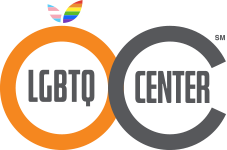
Executive Director Kevin O’Grady and Youth and Advocacy Laura Kanter in Sacramento working to secure LGBTQQ equality.
The State of LGBTQQ California
I’ve been asked a lot lately, “why do we need a Center now we can get married?” and “now we’re equal what does the LGBTQQ movement have left to do?” Achieving marriage equality was a historic gain, but it has created a false feeling of safety and equality. We fought so hard for marriage equality, for so long, and with such intensity that we have lost sight of the wide range of issues impacting our community. Across a broad range of health and social measures: homelessness, hunger, poverty, disease, arrest, unemployment, drug use, smoking, suicide, cancer, HIV/AIDS, obesity, our community experiences rates between three to ten times higher than the hetero community.
We fought so hard for marriage equality, for so long, and with such intensity that we have lost sight of the wide range of issues impacting our community.
Here’s a quick snap shot.
- 40% of the homeless kids in California’s cities are LGBTQQ. Every day, in California, 100,000 LGBTQQ youth live on the streets—that’s more than the population of Mission Viejo. In California there are less than 300 beds dedicated to LGBTQQ homeless youth. In Orange County, there are none.
- Poverty rates are incredibly high in the LGBTQQ community. The belief in the power of the “gay dollar” is a dangerous myth that clouds a frightening reality. Even the highest earners in our community, white, gay male couples, earn 15% less than similarly situated hetero couples. When one looks at lesbian headed households and trans headed households, incomes are 40-60% lower than similarly situated hetero households. One fifth of LGBTQQ households are raising kids; many of these families fall below the federal poverty guidelines.
- The health disparities between our community and the hetero community are staggering. The CDC reports a 132% increase in HIV infection rates among young men of color.
- Tobacco is the number one killer in our community—we smoke at rates 4.3 times higher than the hetero community.
- Injection drug use is 7.3 times higher in our community. We are vastly over represented among people infected with cancer, and while one might think we all go to the gym, work out and look fabulous, obesity rates in the LGBTQQ community are higher than in the straight community as are kidney disease, heart disease and diabetes.
- We’re arrested a lot. LGBTQQ people are grossly over represented in the criminal justice system. Lambda Legal just released a report stating “shockingly high” numbers of judges and attorneys make disparaging comments about LGBTQQ people in court. In violation of the law, we are often kicked off juries because of our sexual orientation. The spark that ignited the modern LGBTQQ civil rights movement, the Stonewall Riots, started as a result of police harassment. For the trans* community, especially, very little has changed.
These issues impact every one of us. Over the next couple of weeks, we’ll look at these issues in more depth, and explore the lived reality of our community. We can get married, and that’s important. We’re represented on TV shows and in the media and that’s important. We’re facing massive health disparities, violence, and poverty, and addressing these issues is vitally important. We can only, successfully, address these problems if our community commits to making the necessary changes. If you are committed to a healthier, safer LGBTQQ community, let us know in the comment section.
